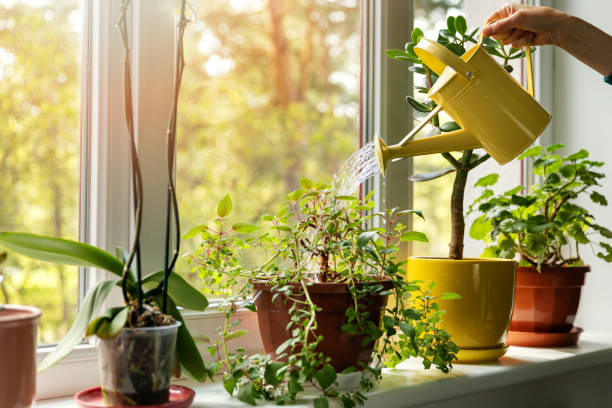
FAQ About Plant Care
Plant Care
2 years ago | gizem
How do I prevent wilting in my plants?
Preventing wilting in plants requires proper care and attention to their water, light, and overall health needs. Here are some tips to help prevent wilting in your plants:
- Proper watering: Maintain a consistent watering schedule and avoid both overwatering and underwatering. Each plant has different water requirements, so it's important to understand the specific needs of your plants. Water thoroughly but allow the soil to dry out slightly between waterings to prevent waterlogged roots or dehydration.
- Check soil moisture: Regularly monitor the moisture level in the soil by sticking your finger about an inch into the soil. If it feels dry at that depth, it's time to water. If it feels consistently wet, you may be overwatering.
- Ensure proper drainage: Ensure that your plant pots have drainage holes at the bottom to allow excess water to escape. This prevents water from pooling around the roots, leading to root rot and wilting.
- Use well-draining soil: Use a well-draining potting mix that allows excess water to flow through easily. This helps prevent waterlogged conditions that can lead to wilting.
- Provide adequate light: Ensure that your plants are receiving the appropriate amount of light for their specific requirements. Insufficient light can weaken plants and cause them to wilt. Adjust the location of the plants to provide the right level of light exposure.
- Avoid extreme temperatures: Extreme temperatures, both hot and cold, can stress plants and lead to wilting. Keep your plants away from drafts, direct heat sources, or cold drafts from air conditioning or open windows.
- Maintain proper humidity: Some plants benefit from higher humidity levels. You can increase humidity by misting the leaves with water or placing a tray of water near the plants. However, be cautious not to overdo it, as excessive humidity can promote fungal growth.
- Fertilize appropriately: Proper nutrition is essential for plant health. Follow a regular fertilization schedule using a balanced fertilizer suitable for your plants. Avoid overfertilization, as it can cause root burn and subsequent wilting.
- Prune and remove damaged parts: Regularly prune your plants to remove dead, damaged, or diseased foliage. This helps redirect the plant's energy to healthy growth and prevents the spread of diseases.
- Monitor overall plant health: Maintain good overall plant care, including pest control, disease prevention, and adequate space for growth. Healthy plants are better equipped to resist stress and less likely to wilt.
